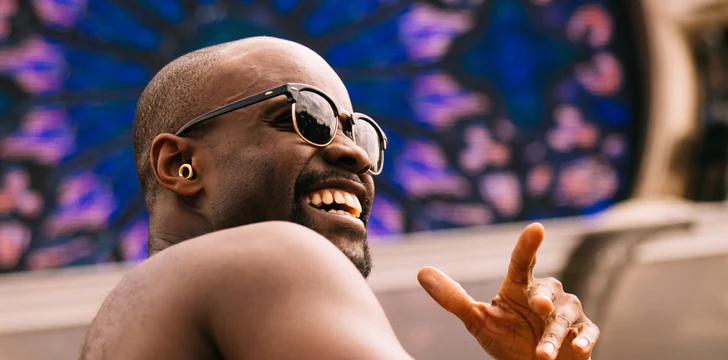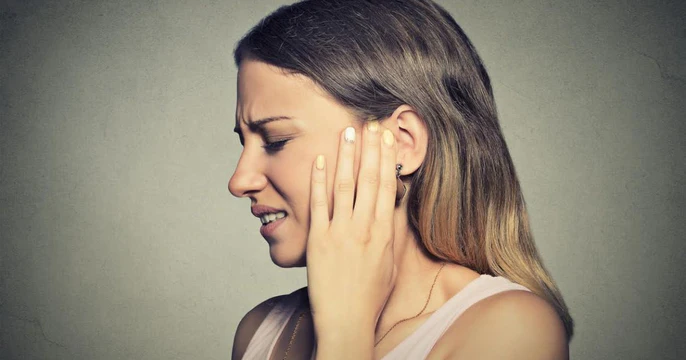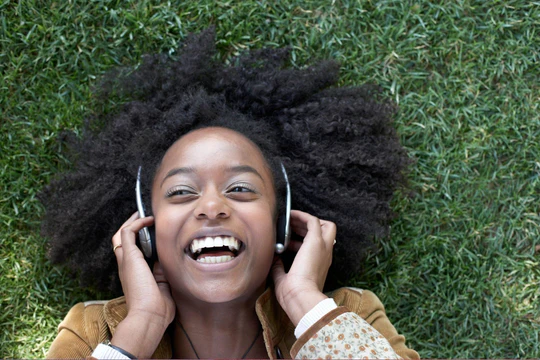Key takeaways
- If you’re a live music lover, it’s important to protect your ears when at concerts and festivals
- That’s because concerts can reach 97 decibels, and rock concerts 104 decibels
- Exposure to 97 decibels for just 30 minutes can put you at risk of hearing damage, and hearing sounds of 104 for just 7.5 minutes can put you at risk
- You’ll need to choose between earplugs that block sounds and those that filter it. Protip: earplugs that filter sounds will give you a better live music experience!
- You can also choose between foam, silicone, molded earplugs and custom fit ones
We love live music. But do you know what else we love? Protecting our hearing! If you’re a live music lover too, and don’t already wear earplugs at concerts, you’re missing out. Let us enlighten you as to why you should protect your ears at concerts – and how to choose the best earplugs for the job.

Should you wear ear plugs at concerts?
In a word: yes. If you go to live concerts and festivals (or nightclubs), then you should be wearing hearing protection. That’s because live music events can reach decibel levels that are harmful to your hearing.
Hearing loss
In fact, rock concerts usually reach decibel levels of 104 – but there’s a risk of hearing damage when exposed to sounds of 100 decibels for just 15 minutes without protection. So, if you’re rocking out to a live band for a few hours without any hearing protection, there’s a good chance you’ll damage your ears.
And that’s bad news. Because exposure to loud noise (either as a single exposure to a single very loud noise, or prolonged exposure over time) can cause permanent hearing damage. In fact, the most common cause of hearing loss is exposure to loud noises.
Tinnitus
Also, you know that ringing noise you sometimes get in your ears after a concert? That’s called tinnitus. Sometimes, it’s just a temporary effect of hearing a loud noise, and it wears off after a day or so.
But sometimes, tinnitus can become permanent. And when you have permanent tinnitus, it doesn’t ever go away. The main causes of permanent tinnitus are noise-induced hearing loss and age-related hearing loss.
If you get permanent tinnitus, it means you’re stuck with a ringing in your ears that can be, at best annoying, and at worst, completely debilitating.
So, how to protect your ears at a concert? The best way is to wear earplugs. But not all earplugs are created equal…
Filtering sound versus blocking it
You might think that earplugs block out all sounds and mean you can’t enjoy the full live music experience – and that’s true for some earplugs. But with others, the sound is simply filtered out, meaning that you still get to enjoy the full live music experience – just at a reduced volume.
There are two types of earplugs: those that filter sound, and those that block it.
Blocking sound just muffles everything and gives you that “I’m underwater”-feeling. It’s often foam earplugs and earmuffs that create this muffled effect – and although completely blocking out the sound can be useful in some contexts (like sleeping!), it’s not the best choice for concerts as it can compromise the quality of the music. So, avoid earmuffs and foam earplugs if you don’t want to block out all sound.
Instead, look for earplugs that are specially designed to filter sound, rather than muffling it. With Loop Earplugs, sound waves enter through a small opening and then pass through a hollow acoustic channel. That means they keep music and speech clear, while reducing the volume, so you can stay aware of your surrounding and live in the moment.
Loop Earplugs
Loop Experience 2
Filtering sound versus blocking it
You might think that earplugs block out all sounds and mean you can’t enjoy the full live music experience – and that’s true for some earplugs. But with others, the sound is simply filtered out, meaning that you still get to enjoy the full live music experience – just at a reduced volume.
There are two types of earplugs: those that filter sound, and those that block it.
Blocking sound just muffles everything and gives you that “I’m underwater”-feeling. It’s often foam earplugs and earmuffs that create this muffled effect – and although completely blocking out the sound can be useful in some contexts (like sleeping!), it’s not the best choice for concerts as it can compromise the quality of the music. So, avoid earmuffs and foam earplugs if you don’t want to block out all sound.
Instead, look for earplugs that are specially designed to filter sound, rather than muffling it. With Loop Earplugs, sound waves enter through a small opening and then pass through a hollow acoustic channel. That means they keep music and speech clear, while reducing the volume, so you can stay aware of your surrounding and live in the moment.
Ensure the quality of the music isn’t compromised
Are concerts bad for your ears? Yes. Does that mean you can’t enjoy them? No, of course not. You just need to find the right earplugs.
High levels of noise reduction
Look out for earplugs that are specifically designed for music events, like Loop Experience. They offer up to 18 decibels of noise reduction, while keeping the sound crisp and clear.
When choosing earplugs, look out for a pair with a high noise reduction rating (NRR). This will ensure that they provide adequate sound protection, and keep your ears protected. Check, too, how many decibels of noise reduction the earplugs offer.
Remember, that an average music concert is around 97 decibels, with rock concerts even louder, at 104 decibels. In some countries like Belgium, it’s legally mandated that concerts have to be between 100 and 105 decibels – but that’s still too loud for your ears, so you’ll need to look for earplugs that offer noise reduction between 15 and 20 decibels.
Choose the materials carefully
The material used makes a difference, too. There are three main kinds of earplugs: universal fit, moldable ear plugs and custom fit.
Make sure you pick universal fit earplugs for concerts. The silicone or foam tips of the plugs are built to suit everyone, and are easy to clean. They usually come in a choice of sizes to suit different ears. Loop Earplugs, for example, come with a range of ear tips in different sizes so you can pick whatever suits you best. Simply select the correct ear tip, pop them in your ears, and you’re ready to rock.
Moldable earplugs, on the other hand, aren’t plug and play. First, you have to heat them up, then let them cool down to a safe temperature and shape them like your ear. Then you need to let them harden. And then you’re good to go. And often, these moldable earplugs are made of soft and sticky stuff. This makes them hard to clean.
Moldable earplugs offer fantastic sound quality, but there is one major downside: the cost. Plus, you have to change them every six years (or thereabouts) due to the changing shape of your ears. So, it’s a good idea to consider cost versus quality when choosing what type of earplugs to go for.
Choosing the best earplugs for concerts
Wearing earplugs at concerts is a personal choice. But when you consider the potential risks associated with loud music, it’s an easy choice to make. Just make sure that you choose the right earplugs for you, based on fit, comfort and noise-reducing properties, and you’re sure to have a fantastic live music experience.

Concert ready: Tips for first-time concertgoers
Get ready for an unforgettable experience! Learn valuable tips and tricks for first-time concert goers to make the mo...

How to Stop Ringing Ears After a Concert
If you’ve landed on this article, there’s a pretty good chance you’re hearing a ringing in your ears while reading th...

Why People Love Loud Music
It’s Friday, 9 PM, and the night is just getting started. You’re ready to enjoy some dancing with your friends. You w...

















